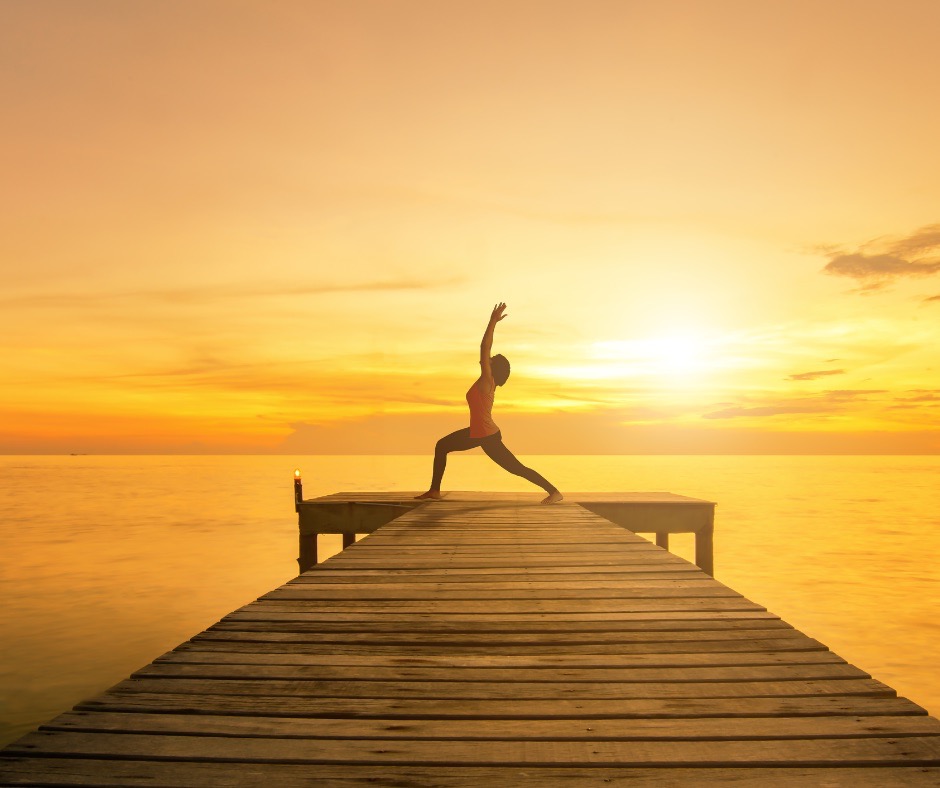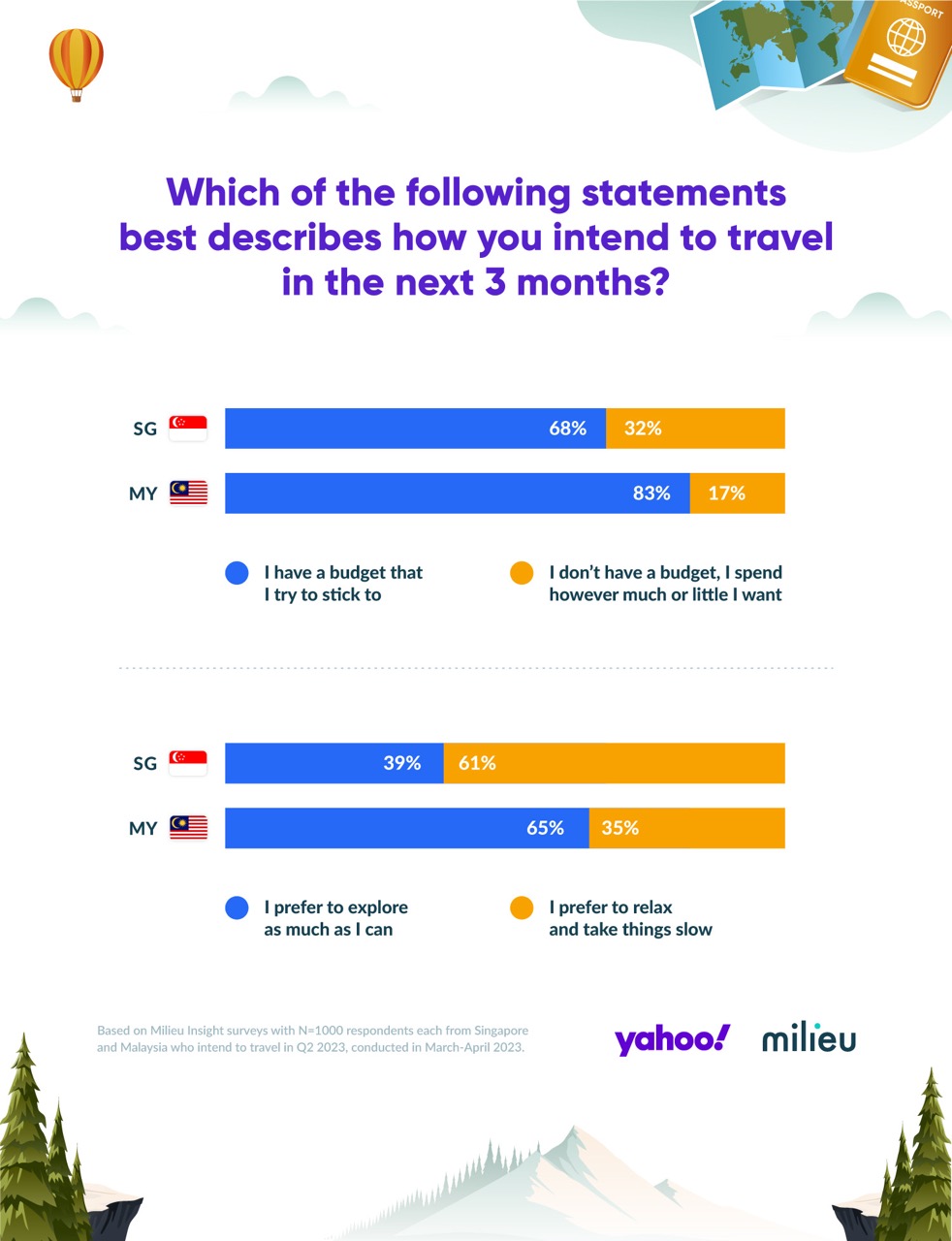The Convergence of Wellness and Tourism is expected to boost Southeast Asian Travel Sector

In a rapidly evolving world where change is the only constant, the travel and hospitality industry stands as a testament to humanity’s unyielding spirit of exploration and discovery. As the dust settles from a global pandemic that reshaped the way travellers experience the world, I have observed how quickly governments and companies in Southeast Asia are seeking to tap on the opportunities that have arose as a result of the convergence of wellness and
tourism.
A noteworthy trend is the rise of eco-conscious accommodations and wellness retreats in remote and natural settings. Travellers are increasingly drawn to destinations that allow them to disconnect from the fast-paced world and immerse themselves in the beauty of nature. These accommodations often emphasize sustainability, offering organic and locally sourced food, eco-friendly amenities, and activities that promote physical and mental well-being.
From eco-conscious accommodations nestled in remote wilderness to augmented reality enhanced cultural encounters, the travel industry’s tapestry is woven with threads of innovation, resilience, and a deep appreciation for the planet we call home.
Moreover, there is a growing demand for personalized wellness retreats that cater to individual needs and preferences. Travelers are looking for experiences that go beyond the traditional spa treatments and encompass holistic wellness practices such as yoga, meditation, mindfulness, and fitness activities. Hotels and resorts are responding to this demand by offering specialized wellness programs and amenities, including dedicated spa facilities, wellness consultations, healthy dining options, and fitness centers.
While travelling typically meant taking a vacation to expand one’s horizons to explore and discover new places and cultures; travel has now become a multi-faceted experience where resorts are now curating wellness offerings alongside cultural experiences. Hotels and resorts are partnering with local communities and cultural organizations to provide authentic and enriching experiences, such as cooking classes, traditional arts and crafts workshops, and cultural performances, all while promoting relaxation and mindfulness.
Digital connectivity has also become an integral part of the travel experience. To enhance the guest experience, many hotels have embraced technology and started to offer mobile check-in and check-out, digital concierge services, and personalized recommendations for wellness activities and attractions. More recently, hotels are even offering AR and VR integrated wellness programmes to cater to the holistic needs and desires of the modern traveller.
In a study conducted jointly by Yahoo and Milieu Insight about consumer travel patterns in Malaysia and Singapore for Q3 2023, 61% of Singapore respondents indicated they prefer to relax while 65% of Malaysia respondents prefered to explore as much as they can.

It is evident that different factors drive individuals to seek wellness experiences, with some focusing on improving physical well-being, while others prioritize mental and spiritual relaxation.
The United Nations World Tourism Organization (UNWTO) has recognized the potential of health and wellness activities as the fastest-growing sub-sectors in the tourism industry’s new normal. The Global Wellness Institute (GWI) reports that the global wellness economy was valued at $4.4 trillion in 2020, with Asia showing great potential for growth. In Southeast Asia, governments are increasingly recognizing the opportunities presented by wellness tourism and are actively promoting it to boost the tourism industry.
Thailand, for example, has not only embraced health and wellness offerings but has also positioned itself as an attractive sports tourism destination. The country’s Tourism and Sports Ministry aims to integrate sports and tourism through a range of events, including golf, Muay Thai, and running events. Additionally, wellness resorts like Kamalaya in Koh Samui are experiencing a surge in demand, with strong future reservations. Additionally, to boost healthcare tourism, Thailand has started to issue one-year visas to people seeking medical treatment and require continuous treatment for more than 90 days.
Singapore has also made wellness a key component of its tourism offerings. The Singapore Tourism Board organized the inaugural Wellness Festival in 2022 to promote holistic well- being. This year, the country will launch a three-week lineup of accessible and innovative wellness experiences aimed at helping both tourists and locals enhance their physical, emotional, and mental well-being. needs, and allocate resources more effectively with data-driven decision-making, leading to improved productivity and guest satisfaction.
Indonesia’s Ministry of Tourism and Creative Economy has identified Bali, Yogyakarta, and Surakarta (Solo) as the top three destinations for wellness tourism. These destinations boast extraordinary wellness assets such as geothermal hot springs, forest bathing, herbal products, and ecotourism,
In the Philippines, the Department of Tourism (DOT) is working to revive the country’s wellness, spa, health, and medical tourism industries. The focus is on experiences that do not involve close contact, with an emphasis on mental health, motivation, sound therapy, meditation, yoga, and nutrition-themed activities. The DOT is also promoting the concept of “Wellness Workation,” encouraging visitors to combine a holiday with wellness activities. The country offers various wellness-focused hotels and resorts, such as The Retreat Spa at Okada Manila, The Farm at San Benito, Nurture Wellness Village, and Chi, The Spa at Shangri-La Boracay, all showcasing natural healing methods and warm Filipino hospitality.
Meanwhile, Malaysia is actively strengthening its reputation as a leading medical tourism destination. The Malaysia Healthcare Travel Council (MHTC) has developed a blueprint to promote curative and preventive healthcare treatments, with a focus on niche specializations such as cardiology, oncology, fertility, and dental treatments. Efforts are being made to drive digitalization and promote premium wellness offerings. As of Q3 2023, Malaysia has recorded significant revenue of RM726 million in this sector.
Vietnam is also taking proactive measures to drive the conversation around wellness tourism by bringing together stakeholders and crafting new tourism products that go beyond traditional sightseeing itineraries. The Vietnam National Administration of Tourism is collaborating with local tourism associations, provincial departments, and partners such as the Oriental Tradition Medicine Association and Yoga Federation to promote wellness tourism. The focus is on showcasing different regions by promoting the country’s beach resort tourism, pristine islands and archipelagos, and the country’s natural mineral water resources.
Travel experiences that address specific wellness needs are now being curated to meet this rise in demand for well-being holidays. For example, Druk Asia, Bhutan’s travel specialist is actively promoting “Tour Neykor”, a mindfulness tour for corporate professionals coping with workplace stress.
Another area of growth is the emerging technology of AR / VR tools to revolutionize how travellers engage with destinations, hotels, and experiences, offering a more immersive and captivating journey.
By overlaying digital components over real-world points of interest, AR can offer on-screen information and transform the way travellers interact with their surroundings. In 2020, Singapore Tourism Board (STB) launched a one-year campaign with Pokémon to boost local tourism where players of the AR game could catch virtual monsters when they explored different parts of Singapore. One of the goals of the partnership was to encourage players to walk physically from location to location.
With Pokémon GO expected to launch Pokemon Sleep, a sleep tracker app for users to monitor their sleeping habits, it will be interesting to see if there will be any hotels or tourism destinations that will integrate activities around this new launch.
VR and interactive visuals can enable traveller to virtually explore destinations, such as stroll through hotel lobbies, or explore a spa resort’s wellness treatment rooms even before they book their holiday. Some resorts are also starting to implement VR technology to create immersive relaxation and meditation environments.
As technology continues to advance, we can expect further integration of AR and VR into the travel and wellness sectors. Companies will continue to innovate and find creative ways to utilize these technologies to create unforgettable experiences, engage customers, and differentiate their offerings in an increasingly competitive market. The immersive and transformative nature of AR and VR holds great potential for transforming the way we travel, unwind, and prioritize our well-being.
Tech Startups and the Wellness Tourism Industry
The booming wellness tourism landscape in Southeast Asia presents a promising space for travel tech startups to enter and support the tourism industry. We are starting to see speciality OTAs coming into the space to consolidate the region’s exciting wellness offerings.
In Japan, JTB signed a contract with Smart Health Net, a health-tech company to develop medical tourism for luxury inbound travellers by using AI-based health check data. Perhaps more health and wellness tech startups that are developing AI solutions to help users manage their health can look into enhancing the well-being of travellers.
Travel tech can also help address manpower staffing challenges. From automation of processes to using advanced analytics tools to identify areas for improvement and optimize workflows, hotels or restaurants can make informed staffing decisions, identify training needs, and allocate resources more effectively with data-driven decision-making, leading to improved productivity and guest satisfaction.
Another area of growth is the emerging technology of AR / VR tools to revolutionize how travellers engage with destinations, hotels, and experiences, offering a more immersive and captivating journey.
By overlaying digital components over real-world points of interest, AR can offer on-screen information and transform the way travellers interact with their surroundings. In 2020, Singapore Tourism Board (STB) launched a one-year campaign with Pokémon to boost local tourism where players of the AR game could catch virtual monsters when they explored different parts of Singapore. One of the goals of the partnership was to encourage players to walk physically from location to location.
With Pokémon GO expected to launch Pokemon Sleep, a sleep tracker app for users to monitor their sleeping habits, it will be interesting to see if there will be any hotels or tourism destinations that will integrate activities around this new launch.
VR and interactive visuals can enable travellers to virtually explore destinations, such as stroll through hotel lobbies, or explore a spa resort’s wellness treatment rooms even before they book their holiday. Some resorts are also starting to implement VR technology to create immersive relaxation and meditation environments.
As technology continues to advance, we can expect further integration of AR and VR into the travel and wellness sectors. Companies will continue to innovate and find creative ways to utilize these technologies to create unforgettable experiences, engage customers, and differentiate their offerings in an increasingly competitive market. The immersive and transformative nature of AR and VR holds great potential for transforming the way we travel, unwind, and prioritize our well-being.
Transformative Areas in the Next 12 Months
Velocity Ventures, as a leading player in the industry, believes that three core areas will see transformation in the next 12 months. Firstly, the way people search for wellness experiences will evolve, with technology playing a crucial role in connecting travellers with suitable offerings. Secondly, the booking process for wellness resorts or itineraries will become more streamlined and user-friendly, allowing for a seamless and personalized experience. Lastly, digitalization and AI will enable the customization of experiences to cater to individual traveller preferences, and improve data-driven decision making.
